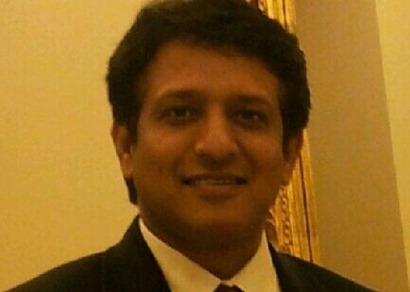
NLSIU Bangalore produced a total five senior advocates this year – one in Punjab and Haryana and one in Delhi, and now three in the Karnataka high court, who were designated next to one non-NLSIU alum, who said that the profession was in a phase where clients’ preference for instructing independent civil litigators was on the decline.
ULC Bangalore 1994 graduate Prabhuling Navadgi, who was designated alongside 1998 NLSIU graduates Aditya Sondhi and K Shashi Kiran Shetty, and 1996 NLSIU graduate Sajan Poovayya, said: “Traditional civil litigation is waning away.”
Navadgi told Legally India: “There are newer challenges in the profession. In the liberalisation era every aspect of life including the legal profession has diametrically changed its face. The concept of an individual lawyer is slowly eclipsing. Organised group of [persons] seems to be the future either in the form of law firms or law associations. Not just specialisation but super specialisation is the need and requirement of the day.”
“In this context the role of senior counsels becomes important. I firmly believe that the designation of any lawyer as a senior counsel is not just a distinction accorded by the court but it comes with a responsibility – to ensure that the younger generation of the bar takes on the mantle.”
Profession and commerce
Son of late Karnataka HC Justice KB Navadgi, Navadgi said he started his career “with practically no briefs in hand” 20 years ago. “Younger members of the bar justifiably are likely to be lured away with commerce,” he commented. “Senior members of the bar are required to guide them to the profession with a firm belief in professional ethics and values.”
Navadgi enrolled as a lawyer with the Karnataka bar on the eve of his father’s 27-year-long career as a judge of the Karnataka HC and was discouraged by his father against joining a law office. Freshly enrolled he therefore started his own practice. “I had this unique responsibility to venture out on my own,” he explained.
He began his practice with civil and labour disputes and eventually moved on to the constitutional side, adding power sector matters to his practice since 2004 when he represented the Tata Group before the Central Electricity Regulatory Commission (CERC) in the CERC’s first decision on “open access” of power across India. That order of the commission is a landmark decision on open access even today, he said.
Matters that matter
The former additional advocate general of Karnataka has represented three chief ministers of the state and dealt with high stake constitutional matters such as on centre state relations, imposition of president’s rule, disqualification of assembly members and conflict of laws.
However, two cases in his career stand out for him.
One case was a landmark Supreme Court decision on compassionate appointments of a financially weak woman whose father had died working in a bank where the bank’s rules provided for such employment only to the employee’s son and not to a daughter.
In the second case he got a dismissal of two school teachers from their posts reversed.
“These are the two cases wherein I felt that the measure of this profession is so high. These are the cases which give you satisfaction of helping out, reaching to the poorest of poor to get justice. Therefore the myth that the law and law courts are meant for only the rich and powerful may not actually be true. There are a number of celebrated cases which reaffirm my belief in the institution and the justice making process,” he said.
Navadgi added that to him “docket explosion” or increasing case pendency was not a sign of disorder but the sign of an “organised society” where citizens trust the system enough to file cases instead of going to non-institutional bodies such as the Khap Panchayats.
“I firmly believe in courts. That’s my individual belief,” he said.
On Venugopal
Navadgi said that he had had the privilege of assisting senior counsels KK Venugopal, Ram Jethmalani, Mukul Rohatgi, Soli Sorabjee and Harish Salve, of which his experience with Venugopal stood out in particular.
“The clarity of thinking and the precision of expression he has in court is something amazing,” he said.
He recounted how in 2002, in a constitutional matter which he was assisting Venugopal on, the evening before the matter, during a case conference, Venugopal had raised a question. “I was quite surprised as to why is he asking this,” Navadgi recollected. But the next morning, the judge hearing the matter began with that very same question, and Venugopal was prepared with the answer to it.
“He had the power to understand what is relevant and what is irrelevant.”
threads most popular
thread most upvoted
comment newest
first oldest
first
Thank you for your comment. Yes of course, we did check that but unfortunately made a typo in the story. Now corrected!
Best wishes,
Prachi
baguspedia.com/senangpoker-com-agen-judi-poker-online-terpercaya-indonesia-2/
threads most popular
thread most upvoted
comment newest
first oldest
first